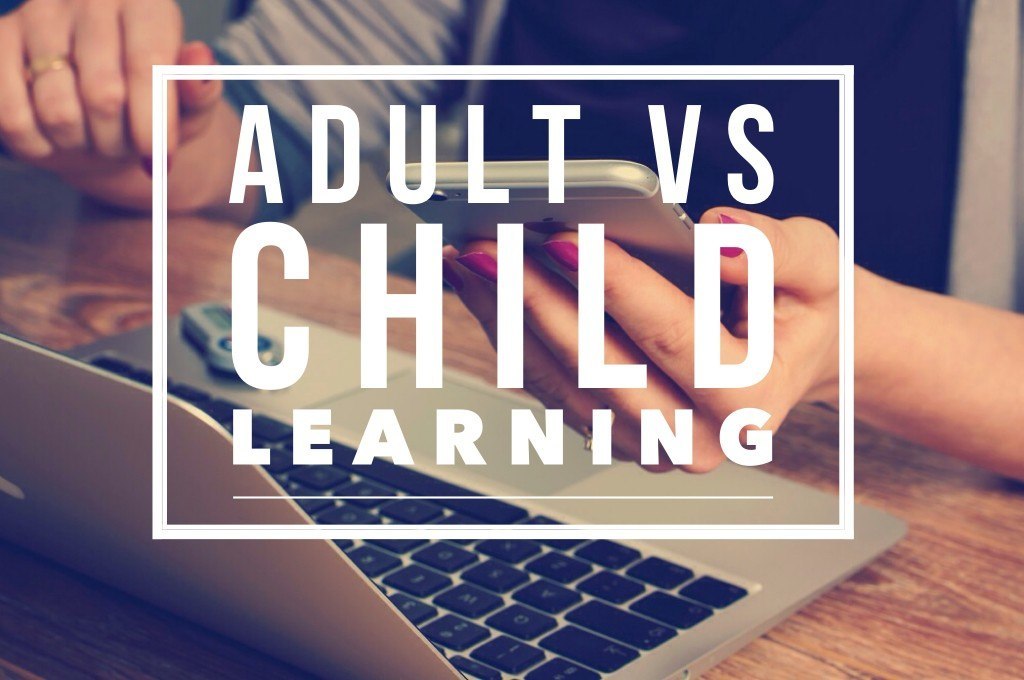Adults often feel like they just can’t learn things as quickly as when you were a child. It seems like whereas information used to be soaked up like a sponge, it takes a lot longer to learn new things later in life. Are adults just not as good at learning as children, or do they learn in a different way?
Adults and children are not necessarily better or worse learners than each other, they just learn differently. Let’s take a look at some of the differences between children and adults when it comes to learning:
Self-Directed Vs. Teacher-Led
When most children learn they are dependent on their teacher to lead the learning, deciding what the child will study. However, many adult learners are more self-directed and they usually prefer to be responsible for their own learning. Also, usually many children need to learn to progress to the next level of education while many adult learners have completed the compulsory levels of school and are picking up additional skills voluntarily. Usually adult learners are choosing to learn skills that are organised around life/work situations rather than subject matter units.
Motivation for Learning
The self-directed nature of adult learning ties into a major difference between adults and children – their motivation for learning. Children are usually motivated by external pressures and the consequences of failure. Children are also usually told what they need to do in order to work their way up to the next level. Adult learners are more likely to be learning because of a desire for a better quality of life, self-actualisation, self-confidence, recognition and much more. They will set their own goals in regards to their learning and they will work toward achieving these goals for their own self-improvement, not because they are required to pass a grade.
Life Experience
When adults are in a learning situation they will be able to bring all of their life experiences to the situation, which will add to their learning and help them to understand new information. When children are learning they have very little life experience that they can use for a resource for learning, so they mostly rely on the experience of the instructor.
These are just a few of the main differences between learning in children and adults. This means that adults are not better or worse learners than children, they are just different. The ability to learn comes down more to the unique motivations and characteristics of each learner and the method in which they are learning.
Future School is passionate about Adult Learning and we have a number of programs that are tailored to the way adults learn, helping to maximise your learning experience. We will be celebrating Adult Learners Week this year, a special event celebrating Adult Learners that lasts from June 13-19th. Visit their website or Facebook page to learn more about the events that they will be offering.at lasts from June 13-19th. Visit our website to learn more about the events that we will be offering.





